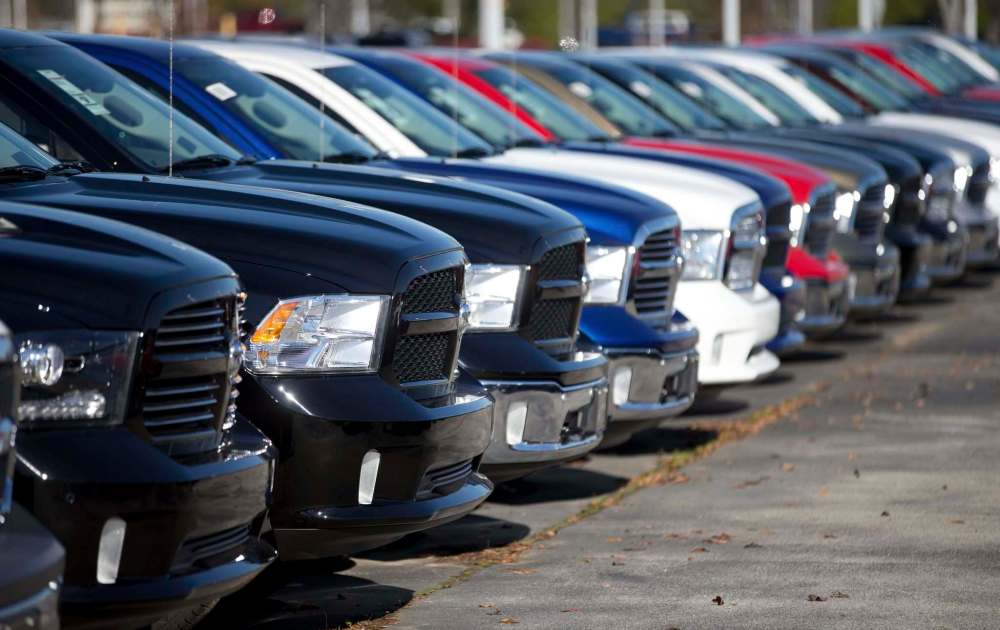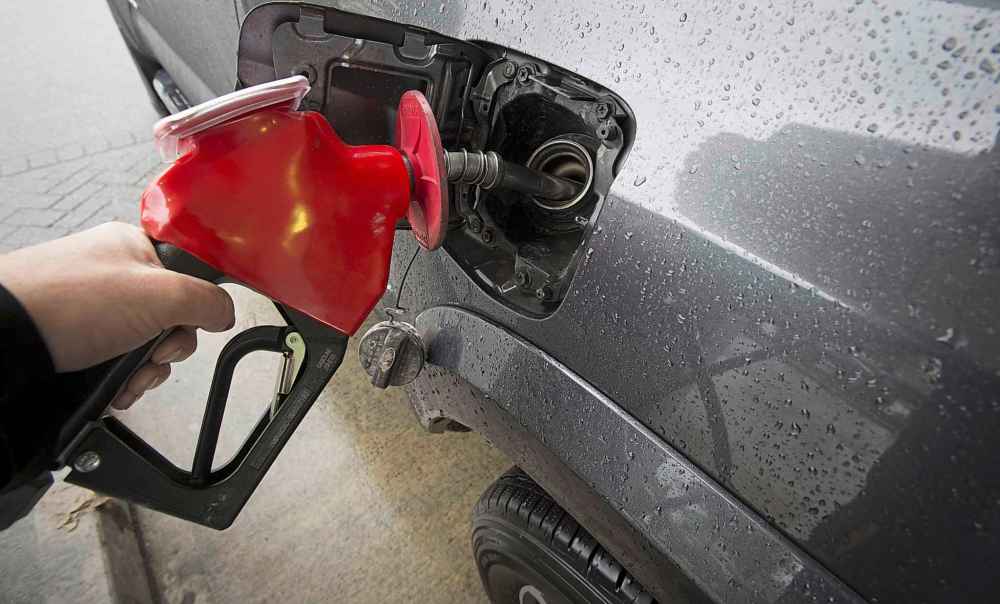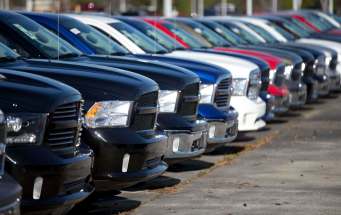When it comes to guzzling gas, we’re No. 1
Read this article for free:
or
Already have an account? Log in here »
To continue reading, please subscribe:
Monthly Digital Subscription
$0 for the first 4 weeks*
- Enjoy unlimited reading on winnipegfreepress.com
- Read the E-Edition, our digital replica newspaper
- Access News Break, our award-winning app
- Play interactive puzzles
*No charge for 4 weeks then price increases to the regular rate of $19.00 plus GST every four weeks. Offer available to new and qualified returning subscribers only. Cancel any time.
Monthly Digital Subscription
$4.75/week*
- Enjoy unlimited reading on winnipegfreepress.com
- Read the E-Edition, our digital replica newspaper
- Access News Break, our award-winning app
- Play interactive puzzles
*Billed as $19 plus GST every four weeks. Cancel any time.
To continue reading, please subscribe:
Add Free Press access to your Brandon Sun subscription for only an additional
$1 for the first 4 weeks*
*Your next subscription payment will increase by $1.00 and you will be charged $16.99 plus GST for four weeks. After four weeks, your payment will increase to $23.99 plus GST every four weeks.
Read unlimited articles for free today:
or
Already have an account? Log in here »
Hey there, time traveller!
This article was published 14/05/2019 (2401 days ago), so information in it may no longer be current.
Before Manitobans complain about the carbon-fuel tax that in April increased the price at the pumps by 4.4 per cent a litre, perhaps it’s helpful to take a global view.
Canadians have the dubious distinction of topping the worldwide rankings for largest vehicles, highest average fuel consumption and highest carbon dioxide emissions per kilometre driven, according to a recent report from the International Energy Agency, titled Fuel Economy in Major Car Markets.
On a planet that should be desperate to cut carbon dioxide emissions, these are categories in which Canadians should apologize for being No. 1.

The fact that a disproportionally large number of Canadians choose to drive gas guzzlers won’t surprise people who have travelled to places like Europe or Asia, or seen video footage of traffic in those regions. Roads there are dominated by small, light vehicles that are fuel efficient.
By comparison, the typical Canadian parking lot tends to be filled with SUVs and pickup trucks. More than any other country, Canadian drivers like to sit high, roar along the roads with engines that have plenty of power, and surround themselves with metal chassis that are protectively heavy.
Winnipeggers who drive large personal vehicles might explain their choice by pointing to the disrepair of city streets — whether it’s iced ruts in the winter, or potholes after the snow goes, larger vehicles are better able to cope with the jolts and jars that are routine hazards of driving on this city’s crumbling pavement.
A second reason commonly offered is personal safety. Drivers of large vehicles point to repeated studies that show when vehicles collide, size matters. In crashes between a heavy vehicle and a lighter one, the worst damage is usually sustained by the smaller vehicle and its occupants.
As common as these explanations may be, the bigger reason why Canadians drive SUVs and pick-up trucks is that they can afford to. People in other countries who want to drive large vehicles are discouraged by a double whammy of expensive vehicle registration and high gas prices.
In European countries, for example, governments use different rates of registration as a tool of social engineering to push vehicle consumers to think small. For instance, registration charges for high-emitting vehicles can be as high as CDN$15,000, while owners who choose zero-emission vehicles can get a rebate of up to $9,000.
If that’s not enough, the price at the pumps adds another disincentive. For example, here are some current gas prices per litre, in Canadian dollars: United Kingdom, $2.24; Switzerland, $2.46; Greece, $2.28; Norway, $2.49; Japan, $2.36.

By comparison, the Manitoba pumps are at about $1.20 this week, even with the new carbon tax that sparked so much bellyaching.
The discouraging reality is that as long as gas is relatively inexpensive, as long as registration fees are relatively low, we Canadians will continue to encase ourselves in big vehicles that burn an unconscionable amount of fossil fuel.
In related news, data from the Mauna Loa Observatory in Hawaii on Monday recorded atmospheric carbon dioxide levels at 415.26 parts per million (ppm), the highest in human history. And last week, a published report warned that nearly one million species were at risk of extinction thanks to the carbon emissions released as a result of human economy activity.
Canadians can hear such grim news and say, “That’s terrible; somebody ought to do something.” Or we can look at our reflection in the rear-view mirrors of our trucks and SUVs.








